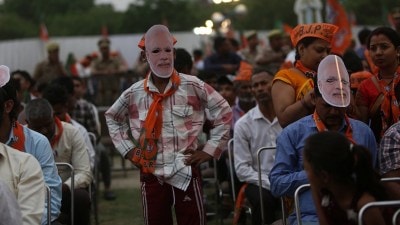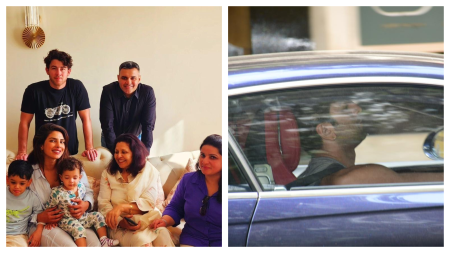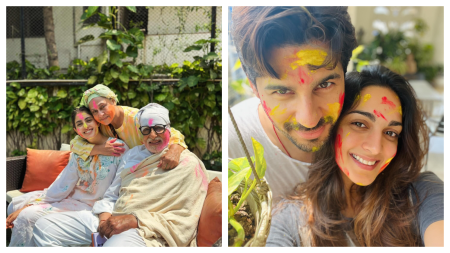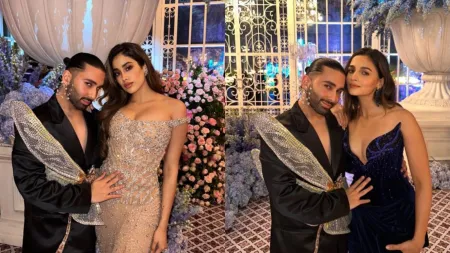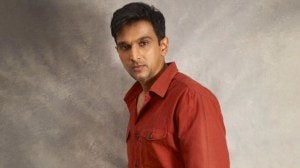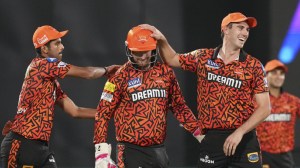- India
- International
No victim-blaming, no fetishising of abuse: Alia Bhatt’s Darlings shows why we need more women telling women’s stories
Darlings understands that the horror of abuse is in its constant malignant presence, not in a few demeaning scenes of violence. It knows that the abuser is neither victim nor monster. And it knows that aurat is most definitely not aurat's dushman.
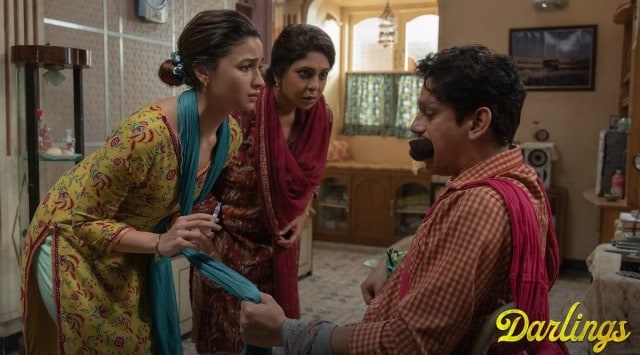 The moral of the story, for me, wasn’t that Hamza is the scorpion who would bite Badru because that’s his nature, but that Hamza, like the scorpion, really thinks he has it in him to control his impulses. (Photo: Screengrab)
The moral of the story, for me, wasn’t that Hamza is the scorpion who would bite Badru because that’s his nature, but that Hamza, like the scorpion, really thinks he has it in him to control his impulses. (Photo: Screengrab)Darlings, now streaming on Netflix, has its misses. It could have been shorter, the plot wobbles, and the movie desperately wants to be called “quirky”. But it also has its hits – heartfelt moments that resonate, powerful performances that chill and hearten, and an unpretentious portrayal of women negotiating unfulfilled men with unfulfilling lives.
Darlings is produced by Alia Bhatt and directed by Jasmeet Reen, who has co-written it with Perveez Sheikh. Watching it, I felt all the high notes the movie hits are because it is a story of women being told by women. Here are four reasons I felt so.
A major win of Darlings is that it manages to tell a gripping story of abuse, violence and revenge without resorting to the tricks all too popular in this genre – gratuitous violence, cursing for the sake of it, and graphic scenes of sexual assault.
Every scene of Hamza and Badru in their house is tingling with dread. The viewer is tense, aware the cutesy calm can at any moment be shattered, knowing the blow will land, but not knowing when. The taut atmosphere conveys the horror of abuse more efficiently than scenes of blood running down the floor and the woman pinned helplessly against the wall. Because, you see, a woman knows.
A woman knows that the horribleness of abuse is not just in explosive scenes of actual violence, but in the dread it tinges your everyday with. That dwelling on a woman being battered and bruised dilutes the omnipresence of that dread, for the viewer is then focused on that scene, and not its before and after. Darlings chooses not to cater to the male gaze by focusing on the cowering woman, the whimpering woman, the woman being raped by her abusive husband. It doesn’t feel the need for cuss words and sexual violence to ‘shock’ the viewer. It knows the subject in itself is horrific enough.

Another reason Darlings stands out is that it steers clear of the “aurat hi aurat ki dushman hai (women are women’s worst enemy)” cliché, which even an otherwise progressive Thappad (directed by Anubhav Sinha) fell for. Too many movies and TV shows depict a woman being held back by her mother or mother-in-law, while a benign father or father-in-law supports her. Showing this situation without acknowledging the patriarchy that creates it – the evil mother or mother-in-law is simply upholding the system she was taught is all powerful – is telling only half the story. In Darlings, Badru’s mother is her rock, for she has recognised and rejected the scam that patriarchy is. Again, you see, a woman knows.
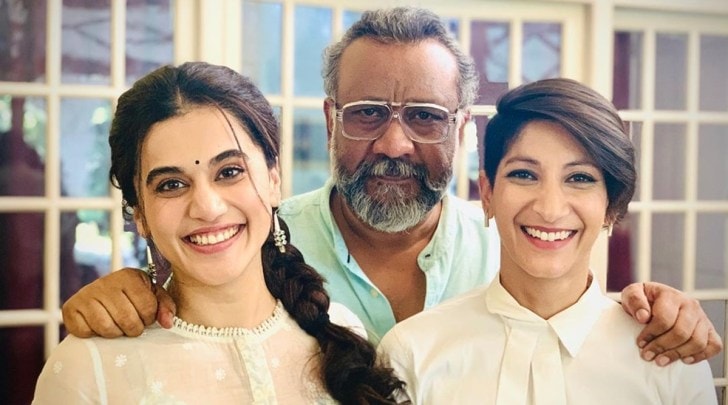 Darlings steers clear of the “aurat hi aurat ki dushman hai (women are women’s worst enemy)” cliché, which even an otherwise progressive ‘Thappad’, directed by Anubhav Sinha, fell for. (Photo: File)
Darlings steers clear of the “aurat hi aurat ki dushman hai (women are women’s worst enemy)” cliché, which even an otherwise progressive ‘Thappad’, directed by Anubhav Sinha, fell for. (Photo: File)
A woman knows you can’t tell a story of one woman’s triumph by casting other women as evil, that these are patriarchy’s tricks to keep women divided and weakened. That if, on screen, you show one woman as good and others as bad, you make the struggle and the triumph about individuals, and not about the system that imprisons women into roles of victims, perpetrators and upholders of abuse.
Third, Darlings does not provide mitigating circumstances for its abuser, nor does it seek to make a monster out of him. Because, unlike men, a woman knows. A woman knows the abuser is not a victim of his circumstances, a poor little boy oppressed by the world lashing out on the woman he “loves” because she is his safe space. Nor is he a fanged and horned outlier, whom we can comfortably dismiss as an aberration.
Hamza is an everyman, bullied at work but lacking the courage to hit out there. Alcohol may bring out his vices, but does not cause them. You could meet a Hamza anywhere and not know him for what he was. Except that women do, for we live with them, or our friends, sisters, mothers tell us about them.
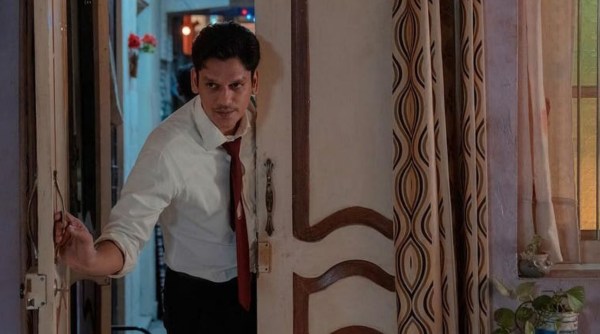 Vijay Verma in Darlings. (Photo: Vijay Verma/ Instagram)
Vijay Verma in Darlings. (Photo: Vijay Verma/ Instagram)
Finally, Darlings avoids the temptation of the dramatic transformation of its heroine – quivering gazelle to avenging angel. Badru the victim is not helpless; she is hopeful and blind in love. Even while she puts up with her violent husband, she is spirited, resilient and enterprising. Because – once again – a woman knows.
She knows a victim of abuse is not weak and lacking in self-respect. She is trapped in hope and despair, taking three steps forward and four backwards. The abuser can make her doubt herself, cut her off from her support systems, as Hamza tries to do with Badru and her mother. And even when she does choose to put a stop to the abuse, the transformation doesn’t have to be hair-flying, eyes-blazing, sword-of-justice-in-hand ferocity. It can be halting, self-doubting, brave, but also sad.
Darlings chooses to be sensitive and respectful to women who go through abuse, at the cost of more entertaining, but inaccurate, avenger drama. Because it has been made by women, and is not catering to a default male viewer.
Photos
Apr 25: Latest News
- 01
- 02
- 03
- 04
- 05











